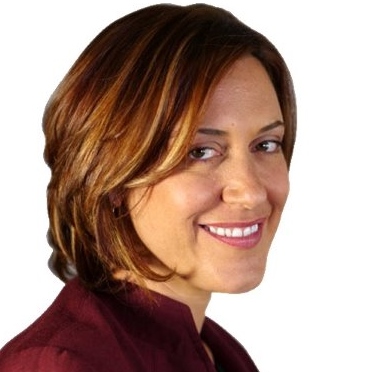
News

Is Trump’s ‘deal of the century’ no deal at all?
PAULA SLIER
This week, the European Union officially rejected parts of it, saying that it contradicted “internationally-agreed parameters” and any Israeli annexation of Palestinian land would be subject to challenge.
The Organisation of Islamic Co-operation – the second-largest intergovernmental organisation in the world after the UN, representing nearly two billion people – rejected it in full. It called on member states “not to engage with this plan or to co-operate with the US administration in implementing it in any form”. Two days earlier, the Arab League also issued public condemnation that the plan “does not meet the minimum rights and aspirations of Palestinian people”.
But perhaps the most damning response came from Palestinian President Mahmoud Abbas, who announced he was severing all relations, including cutting security ties, with the United States (US) and Israel. Abbas has made similar threats in the past but refrained from following through on them.
Jerusalem relies extensively on the Palestinian Authority (PA) to share intelligence that helps it reduce attacks on Israeli forces and citizens. In the run-up to “the great unveil” the sides co-operated on how to deal with anticipated protests, most of which did not materialise.
The Fatah-dominated PA uses information Israel gives it to maintain its dominance in the West Bank and to undermine its rival Hamas. It’s in both sides’ interests that Hamas doesn’t take over the West Bank, and that the PA continues to work together with Israeli officials on security matters, as it does now.
At the moment, the close security co-operation between the sides continues as normal. But things can change.
Trump’s plan calls for the creation of a demilitarised Palestinian state in about 70% of the West Bank. Israel would retain Jewish communities in Judea and Samaria, keep the Jordan Valley under Israeli control, and have the right to formally declare sovereignty over these areas.
As much as Trump claimed the plan was new, it wasn’t. Maps envisioned by Israeli Labor party leaders like Yigal Allon and Yitzhak Rabin were almost identical to the one presented by Trump’s team last week.
Arab states have had a mixed reaction. Three ambassadors – from the United Arab Emirates, Oman, and Bahrain – were at the White House to hear the announcement. But notably absent were ambassadors from Saudi Arabia, Jordan, and Egypt, the latter two are Arab countries that have peace treaties with Israel.
For Israel, the lack of a unified, firm rejection of the plan, signals that some Arab states are willing to normalise relations with it, mostly to secure a “united front” against perceived threats from Iran. It also shows that whereas in the past Arab countries were able to prioritise the struggle of the Palestinian people over domestic-agenda items, this is no longer the case.
The plan proposes that $50 billion (R739.6 billion) be invested into infrastructure and business projects in the Palestinian territories. Among the Arab countries willing to help finance this are Egypt, Saudi Arabia, Qatar, Bahrain, Oman, the United Arab Emirates, and Morocco. This is an opportunity that might not come around again. Israel has never had Arab leaders support a peace initiative to this extent in the past.
But Israeli Prime Minister Benjamin Netanyahu could forego all this if he insists on extending Israeli sovereignty over substantial parts of the West Bank. Immediately after the plan’s unveiling, he said he would put the issue to a vote in parliament. As a show of goodwill to the Palestinians, the Trump administration subsequently insisted that Jerusalem not approve any annexation of territory – including that of the Jordan Valley – until after a new Israeli government is formed.
Netanyahu’s allies now fear the delay might cost them votes in the 2 March election. (As an interesting aside, a journalist for Israel’s right-wing Channel 20 tweeted that Netanyahu’s aides accused Trump’s senior advisor and the architect of the plan, Jared Kushner, of stabbing Netanyahu in the back, a report the prime minister’s office swiftly denied.)
Leaders of Trump’s evangelical support base in the United States have said they see no hurry to annex more territories, so domestically there’s no advantage to Trump to push for annexation.
As for the Democrats in the US, there were none reportedly in the East Room when Trump announced his plan. Netanyahu isn’t known to have met with any of them during his visit to the US. It’s in stark contrast to how Israeli prime ministers behaved in the past when they would always prioritise the importance of maintaining bipartisan support across the US political mainstream. No doubt, any unilateral annexation would provoke a bitter partisan conflict as the Democrats would vehemently oppose it.
In his White House speech last week, as he stood next to Trump, Netanyahu compared the moment to the day Israeli independence was declared on 14 May 1948. Not everyone would agree, but to listen to Trump’s support of Israel was undeniably a truly emotive and inspiring moment for those who support him and Netanyahu.
The plan admits it’s only a starting point “designed for the benefit of Palestinians, Israelis, and the region as a whole” that would lead to direct Israeli-Palestinian negotiations. If indeed this could be realised, the perceived “non-starter” could ultimately become the “deal of the century”. But as things stand, it’s difficult to predict how it can be salvaged from its growing reputation as the “joke of the century”.




